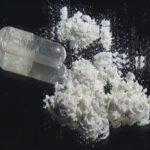If you and your partner are struggling with heroin addiction, you’re not alone. Many couples face similar challenges, and it can be difficult to know where to turn for help. But the good news is heroin addiction is treatable, and you can live sober lives again. In this guide, we’ll explore some steps you can take to overcome your addiction and rebuild your relationship.
How does addiction affect my relationship?
If you or your partner are struggling with heroin addiction, you may have noticed that it can take a significant toll on your relationship.
For one, drug addiction can cause a breakdown in communication. If you or your partner have a habit of using heroin, it may be much harder to be open and honest with each other, especially regarding drug habits. You may find that you or your partner are less engaged in conversations, less emotionally available, or more prone to arguments.
Addiction can also lead to a loss of trust in the relationship. You or your partner may be less reliable or may break promises related to your drug use. This can lead to feelings of betrayal and hurt, and can ultimately damage the foundation of the relationship.
Additionally, addiction can cause financial strain on a couple. Heroin is an expensive drug, and the costs of addiction can quickly add up. You may find yourselves struggling to pay bills or meet other financial obligations, which can cause stress and tension in the relationship.
Addiction can also lead to a lack of intimacy in the relationship. The effects of heroin can prevent you or your partner from making proper emotional and physical connections with each other. You may find that you or your partner are less interested in sex or are less affectionate with each other.
Finally, addiction can cause significant emotional distress for both partners. Addiction is a challenging and isolating experience that can lead to feelings of shame, guilt, and despair. You and your partner may feel disconnected from each other or may struggle to find joy in your relationship.
Despite the challenges, recovery from a drug addiction is possible. Here are the steps you need to take.

Step 1: Seek Professional Help
There are a wide range of professional programs that can help you and your partner overcome your addiction. You may go to detox centers, residential rehab facilities, support groups, and outpatient rehab providers.
Detox centers will help you safely and comfortably quit using heroin. Detox is often supervised by medical professionals to keep you safe and healthy as you reduce your dosage of heroin. After detox, you may have to enroll in an inpatient rehab program, which provides comprehensive treatment and support. If you have a mild addiction, outpatient programs are an option. They offer more flexibility and allow you to receive treatment while continuing to work or study. Support groups such as Narcotics Anonymous (NA) can provide ongoing support and guidance as you navigate your recovery journey.
It’s essential to choose a treatment program that meets your individual needs and preferences. You and your partner may benefit from different types of treatment or different levels of care. A treatment professional can help you assess your needs and make an informed decision.
Step 2: Address Underlying Issues
Heroin addiction is often a symptom of underlying issues such as trauma, mental illness, or chronic pain. To achieve lasting recovery, it’s essential to address these underlying issues.
Individual and couples therapy can be beneficial in addressing underlying issues. A therapist can help you and your partner identify and address any emotional or psychological factors that may be contributing to your addiction. They can also teach you healthy coping skills that do not involve substances.
It’s also essential to address any physical health issues that may be contributing to your addiction. Chronic pain, for example, can be a significant driver of opioid addiction. If you or your partner are experiencing chronic pain, it’s important to work with a medical professional to develop a comprehensive pain management plan.
Step 3: Build a Support System
Recovering from addiction can be challenging, and it’s important to have a strong support system in place. Your support system may include family members, friends, support groups, or a sponsor.
If you and your partner are recovering together, it’s crucial to support each other through the ups and downs of recovery. You can attend therapy sessions together, participate in support groups together, and encourage each other to stay on track.
It’s also important to set healthy boundaries with people who may enable your addiction or trigger you to use drugs. This may mean avoiding certain social situations or ending relationships with people who are not supportive of your recovery.

Step 4: Develop Healthy Habits
Recovery from addiction involves more than just abstaining from drugs. It’s also about developing healthy habits that support your overall health and well-being.
Exercise, healthy eating, and getting enough sleep are all essential components of a healthy lifestyle. These habits can help you manage stress and promote a sense of well-being.
Yoga, meditation, and mindfulness are also helpful in easing stress and promoting relaxation. These practices can help you and your partner develop a deeper understanding of your thoughts and emotions, which can be particularly helpful in managing triggers and cravings.
Step 5: Focus on Communication and Trust
Addiction can take a significant toll on a relationship, and it’s essential to rebuild trust and communication as you work towards recovery. Couples therapy can be beneficial in helping you and your partner communicate effectively and rebuild trust.
It’s also important to be honest and transparent with each other about your thoughts, feelings, and struggles. This can help you build a deeper connection and foster a sense of emotional intimacy.
In conclusion, recovering from heroin addiction as a couple is a challenging but ultimately rewarding journey. By seeking professional help, addressing underlying issues, building a support system, developing healthy habits, and focusing on communication and trust, you and your partner can overcome addiction and build a stronger, healthier relationship.
Always remember that when you are in recovery, you may experience some setbacks along the way. But with professional treatment and support, it is quite possible to overcome your addiction and regain control of your lives.


